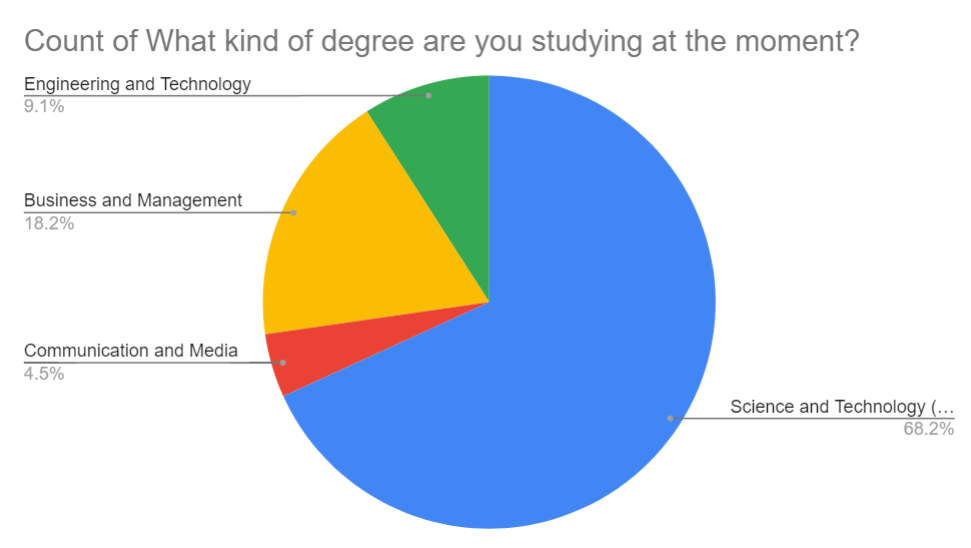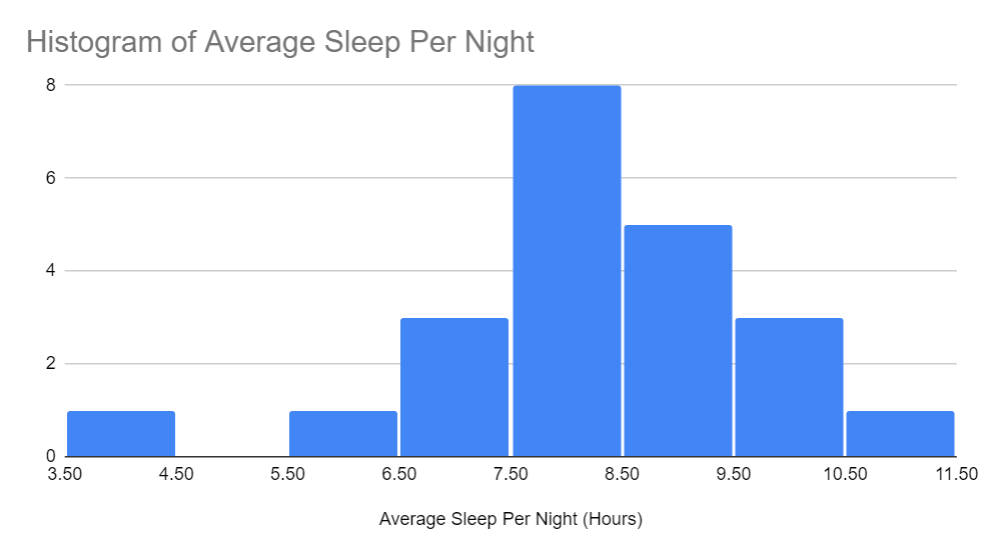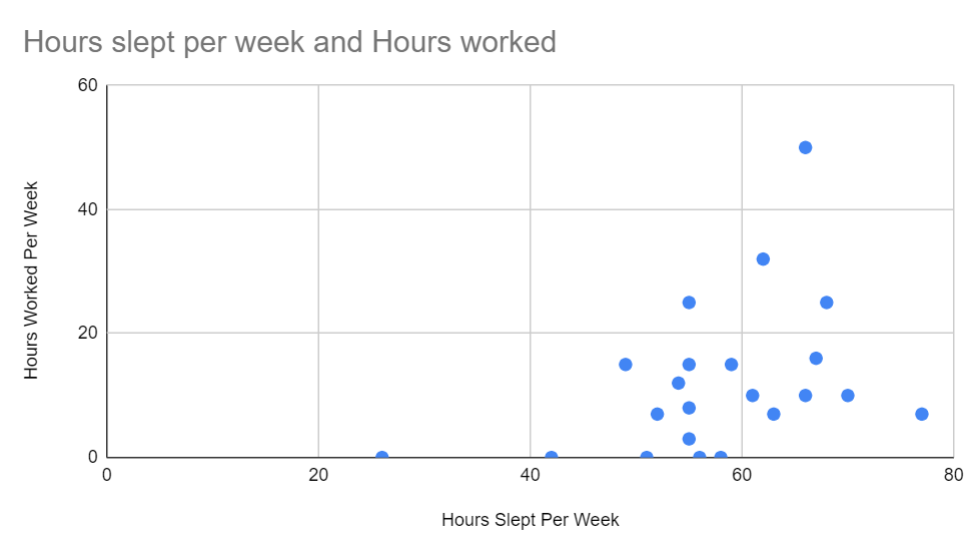Exploring Sleep Patterns within UNSW Data Science Society: We Are Normal!
Written by Han Zhang
Published 2 years ago
Edited a year ago

Welcome to another UNSW DataSoc blog! In this post, we are excited to present the intriguing findings of our internal sleep study. With the participation of 22 unique students, we delved into the sleep habits and patterns of our society members. The study involved the collection of sleep data for all 7 days of the week using a digital survey, resulting in a wealth of information that sheds light on the sleep behaviours of our diverse community. 🌟🌙
Demographics and Participants
Before diving into the results, let’s take a look at the demographics of our participants. Of the 22 students who took part in the survey, we found that 4.5% were studying communication and media, 68.2% were pursuing math and data science, 9.1% were in engineering, and 18.2% were studying business and management. Wow, we are all about diversity and inclusion!

Overview on Sleep Durations
The survey provided us with valuable insights into the average sleep duration per week of our society members. The data exhibited some variability in sleep durations, with a range of 7.29 hours, a standard deviation of approximately 2.18 hours, and an interquartile range of around 1.43 hours. The mean sleep duration was found to be 8.36 hours, with the mode and median both around 7.86 hours, indicating an approximately symmetric distribution.

Correlation between Sleep and Work
One interesting aspect we explored was the potential relationship between the average hours of sleep per night and the number of hours worked per week. The correlation coefficient between these two variables was approximately 0.168, suggesting a very weak positive correlation. In simpler terms, the data indicates that there is little to no significant relationship between the average hours of sleep per night and the number of hours worked per week among our members. This finding emphasises the importance of maintaining a healthy work-life balance and getting adequate rest regardless of the workload.

Sleep Patterns Across Days of the Week
Analysing the data, we sought to identify any patterns in sleep duration across different days of the week. Visually, it appeared that most people tend to sleep from 1 am to 9 am, with variations becoming more apparent on weekends and more consistent patterns observed during weekdays. This observation aligns with common expectations, as weekends often allow for more flexibility in sleep schedules compared to weekdays with fixed routines.

Conclusion
In conclusion, “We Are Normal!” is an apt title for our blog as our internal sleep study revealed that our Data Science Society members’ sleep habits align closely with the recommended sleeping schedules proposed by health experts. With an average sleep duration of 8.36 hours per night, our members are well within the recommended range of 7 to 9 hours. Additionally, maintaining relatively consistent sleep patterns during weekdays showcases an awareness of the significance of a regular sleep schedule. 🌟🛌
However, it’s important to remember that sleep is a crucial component of overall well-being, and individual sleep needs may vary. As we continue to embrace data-driven insights, we encourage our society members to prioritize sleep health, maintain a healthy work-life balance, and make informed decisions to promote their overall health and productivity. Remember, a good night’s sleep is the foundation for a successful and fulfilling journey in the world of data science! 💪🌙💤